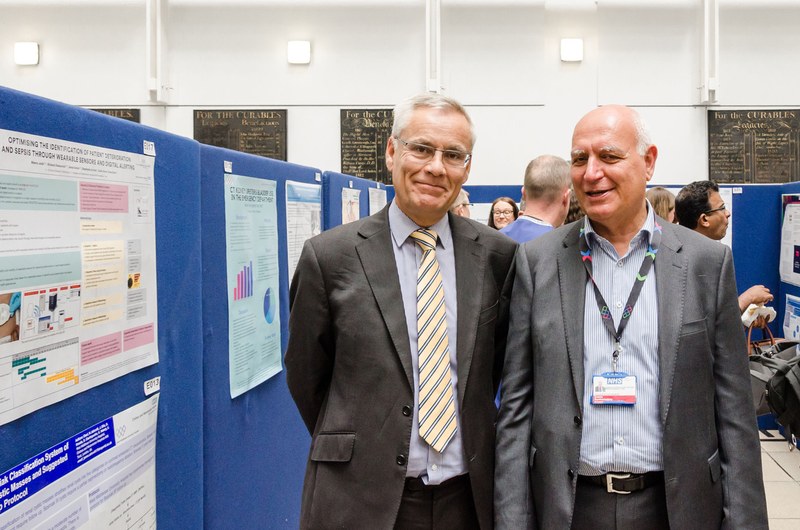
Research, Audit and Service Improvement (RASI) Event
10 October 2017
On Wednesday 27 September 2017 the R&D department hosted the Trust’s annual Research, Audit & Service Improvement (RASI) event at Chelsea and Westminster Hospital.
On Wednesday 27 September 2017 the R&D department hosted the Trust’s annual Research, Audit & Service Improvement (RASI) event at Chelsea and Westminster Hospital.
Supported by the clinical divisions, their leaders for governance and improvement and the National Institute for Health Research (NIHR) Collaboration for Leadership in Applied Health Research and Care (CLAHRC) North West London, the afternoon shone a spotlight on the outstanding quality initiatives carried out by our clinical teams and was a unique opportunity to exchange knowledge with experts and peers.
Just getting a research or improvement project off the ground can seem daunting at first, but the event led visitors through exactly what is possible by showcasing the very best of our achievements to date and the real impact projects have made for patients.
Around 100 people attended the event, which included a keynote speech from Professor Stephen Smye, Speciality Cluster Lead at the NIHR outlining how health research will help make the NHS fit for the future, guided walks of each clinical division’s latest project posters and workshops unveiling how to start a project, who can help, where the funding comes from and just how to ensure learning and insights get shared as they deserve.
Significant breakthroughs made by our teams and awarded at the event included:
- Dosage reduction and de-prescribing of admission medicines due to over 40% being found as potentially inappropriate
- The highly successful pilot of administering ketamine in our Emergency Department for the safe and effective treatment of displaced forearm fractures in younger patients
- Earlier identification of patients with sepsis using wearable sensors and digital alerting
Dr Hugh Rogers, Associate Medical Director for Information and Service Transformation, took part in the interactive panel at the end of the day and said: “It has been fantastic to see such a wide range of projects first hand, from pure research through to service improvements and also understand the impact these have had on patient care and efficiency. This is something we can all be very proud of.”

